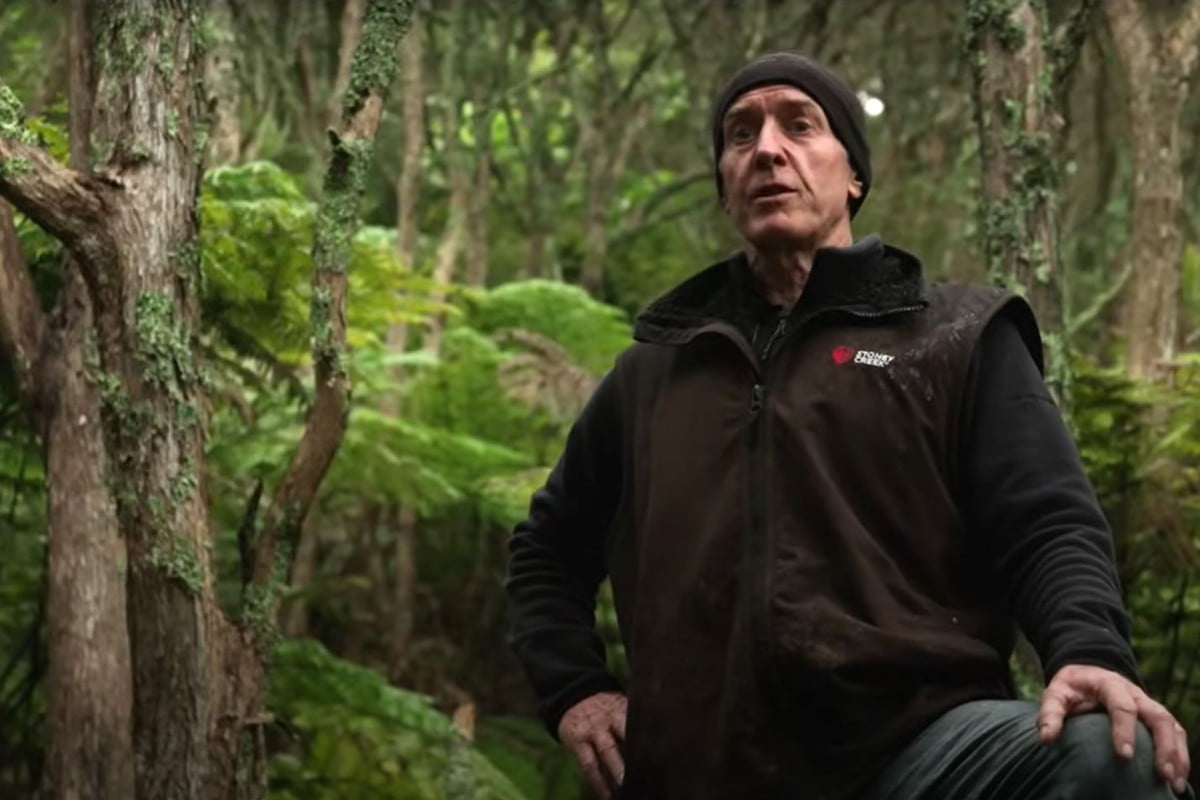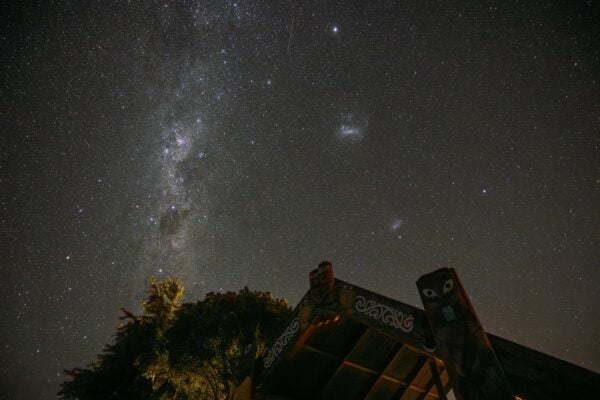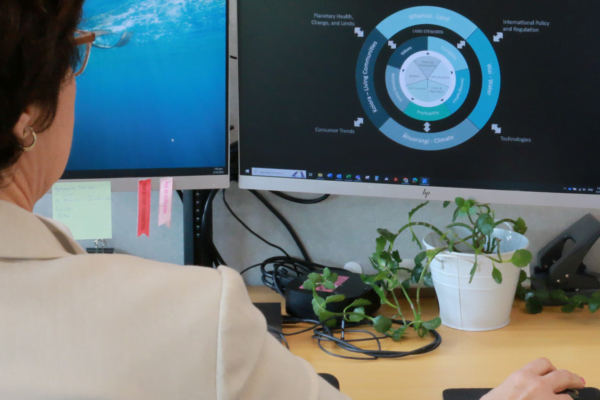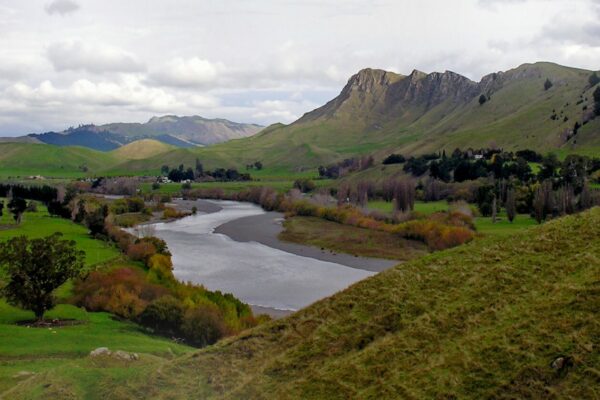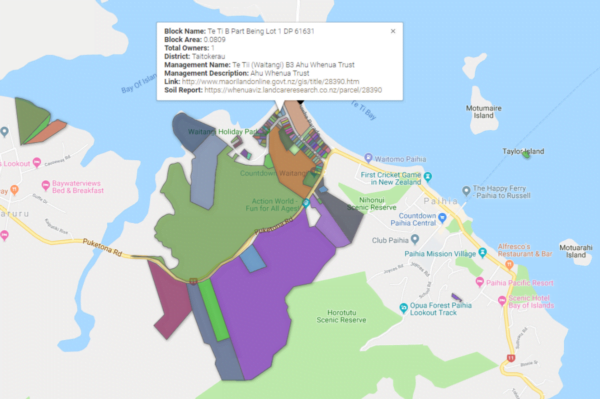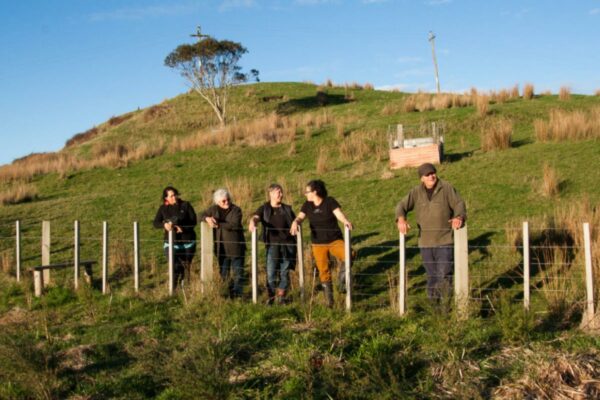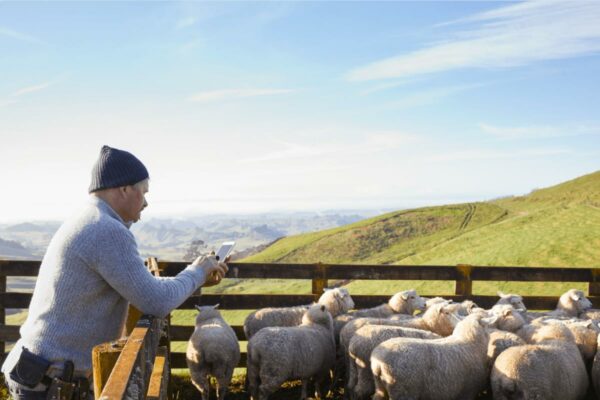Project Summaries
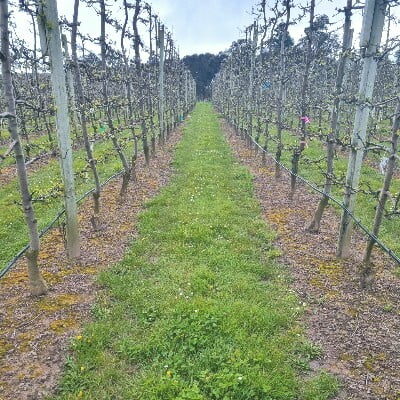
Ground cover plants to replace the 'weed spray strip'
Weed management in Nelson orchards could be transformed by successfully growing hardy, perennial ground cover plants to outcompete weed species under apple and pear trees. Current standard orchard practice is to use herbicide sprays in the area under trees, to remove competition for nutrients and water from unwanted 'weed' plants. This has been reliable and cost-effective management practice but leaves ground bare, susceptible to erosion and with overall reduced health. Some chemicals have also been found to harm pip fruit trees. This project aims to contribute knowledge to the goal of eliminating the need for herbicides in future.
Rural Professional: Aimee Lister (AgFirst)
Project Team: Craig Hornblow (AgFirst), Rob Holtham (Willisbrook Orchard), Anna Lambourne (NZ Apples and Pears), Jake Tully (NZ Apples and Pears), Rebecca Campbell (Plant & Food Research)
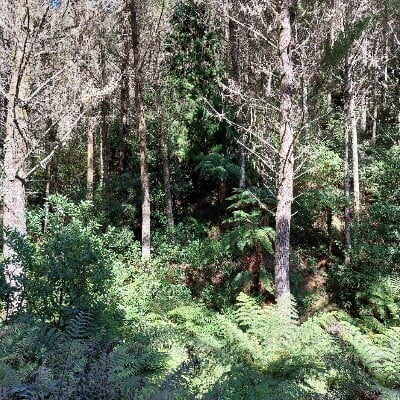
Pines as a nurse crop to establish natives
The Emissions Trading Scheme provides an opportunity for sheep and beef farms to diversify income by retiring marginal land into exotic or indigenous forestry. Farmers typically see native trees as beneficial to their landscape, but the cost and time to establish indigenous forestry is a barrier. This project will investigate the potential for using pines as a low-cost, low-stress nurse crop to establish native bush. Pine plantations across Waikato will be surveyed to provide guidance on the relevant factors required for a successful transition, and an economic analysis will determine costs, carbon accumulation and revenue.
Rural Professional: Steven Howarth (AgFirst)
Project Team: Phil Weir (AgFirst), Adam Forbes (Forbes Ecology), Martin Coup (farmer)
This project has submitted an academic journal paper that will be added below once published.
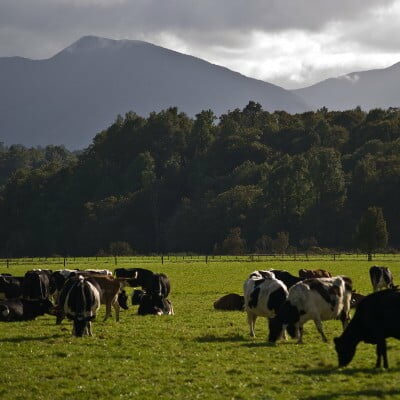
How to winter better
Wintering on the West Coast of the South Island is a challenge. This project aims to provide West Coast farmers with a range of wintering options and information to improve their environmental outcomes. This project will interview West Coast farmers who use standoff pads, winter herd shelters, and composting barns, to discover their motivations, reasoning, and other options they've considered. The differing wintering options will be modelled through OverseerFM and Farmax to understand the economic and environmental implications of making these changes to the farm system.
Rural Professional: Andrew Curtis (Primary Insight)
Project Team: Taane Johnsen (Westland Milk), farmers TBC
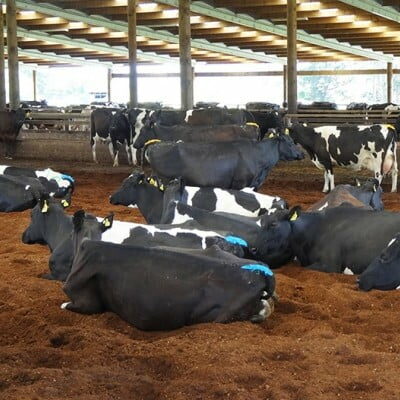
Composting 'mootels' on the West Coast
This project aims to provide New Zealand dairy farmers with a clear pathway to developing a composting shelter (or 'mootel'). It will undertake an in-depth analysis of the design, capital costs, and process of shifting to a mootel system, based on real experiences of transitioning by two West Coast dairy farms, including their biophysical and economic data. A transition map will be developed to clarify considerations for moving from pre-mootel to post-mootel. A final report will provide unique contextual information on the pros and cons of integrating composting mootels into a West Coast farming system.
Rural Professional: Robb Macbeth (Rural Consulting)
Project Team: Keith Woodford (Agri-Food Systems), Rachel Durie (Perrin Ag), Josh Brown (Rural Consulting), Harry Millar (Rural Consulting), Gaye and Murray Coates (Haupiri farm), Carmel and Matt O'Regan (Mangawaro farm)
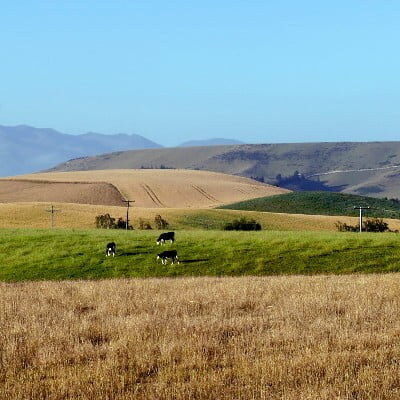
Milling wheat as a nitrogen scavenger
Almost all milling wheat used in the North Island is imported. Diversifying land use by integrating spring wheat into a farm system may provide environmental benefits due to its ability to 'scavenge' nitrogen following pasture or vegetable crops in a rotation. This project will model and measure the environmental, production, greenhouse gas, and economic impact of growing spring wheat within North Island farm systems. This will be ground-truthed at two sites: pasture to wheat in the Wairarapa, and within a vegetable crop rotation in Ohakune. The outcomes will be used in a wider milling wheat programme that aims to increase the area of the North Island growing wheat from 40ha to 600ha by 2025.
Rural Professional: Nick Pyke (Leftfield Innovation)
Project Team: Stuart Ford (The AgriBusiness Group), Julie Lambie (The AgriBusiness Group), Mariana Andrucelli (Lincoln University), Ra Smith (Kahungunu Ki Wairarapa)
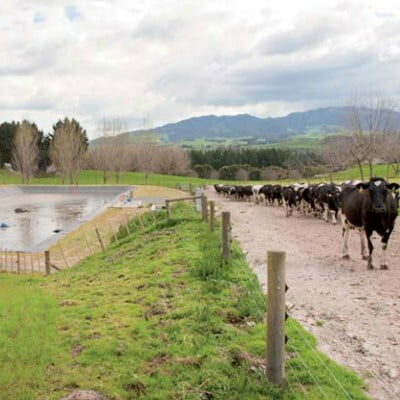
Electrocoagulation treatment for dairy waste
Electrocoagulation is currently used to treat wastewater from activities such as mining. This project will investigate using electrocoagulation as a treatment for dairy waste, and assess whether this technique could recover enough phosphate and nitrates to reduce fertiliser costs, and enable water recycling. Research will take place on the Te Rarawa dairy farm, Tupehau Dairy, which currently uses 220,000 litres of water a day in the wash-down process, including the feedpad, with the water currently irrigated on land. Success will be measured through water sampling, recycled water use, water to be discharged meets recreational standards for freshwater following treatment, cost savings, and nutrient testing of the fertiliser by-product.
Rural Professional: Chevon Horsford (LIC FarmWise)
Project Team: Andreus Kurmann (Far North Enviro Lab), Stewart Otene (Te Waka Pupuri Putea Trust), Chris Moretti (Te Waka Pupuri Putea Group)
This project encountered setbacks and was not able to deliver a full technical report.
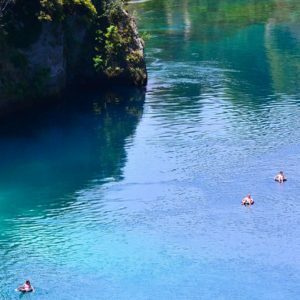
Can green crops capture enough nitrogen for vegetable growing?
Nitrogen fertiliser use is becoming increasingly restricted and expensive, so vegetable growers are looking for new methods to manage the high nitrogen demands of their crops. Despite the extensive use of clover grasses to capture nitrogen in pastoral farms, this approach isn't widely used for intensive vegetable production. There is a lack of New Zealand-specific data for suitable green crops that can capture and supply nitrogen for vegetable production. This study will undertake field trials to quantify the nitrogen captured by legume/grain cover crops, and will investigate how quickly it is then released into the soil, longer-term nitrogen losses, and profitability.
Rural Professional: Dominic Ferretti (Ferretti Growers)
Project Team: Sjef Lamers (Sustainable Nutrition)
This project has submitted an academic journal paper that will be added below once published.
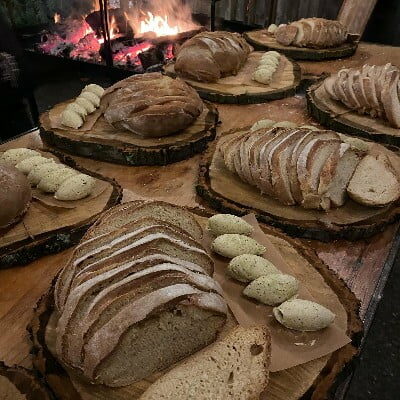
Local grain economy
Aotearoa's food imports are dominated by grains. We have the land and industry support to grow much more of our own arable food, but our processing mills have little incentive to ensure grains are New Zealand grown, leaving our farmers in price competition with bigger global players. This project will analyse what is required to enable arable farmers to develop on-farm processing mills, to support local food security. The team will take lessons from other on-farm processing initiatives, such as on-farm pasteurising, mobile abattoirs, and small-scale fish processing facilities, assessing how they have overcome barriers to enable success.
Rural Professional: Angela Clifford (Eat New Zealand)
Project Team: Heidi McLeod (Lincoln University), Hamish Glendinning and Simon White (Ludlow & Woodbrook Farms)

Systems thinking for future farm design
Farmers need support to identify and implement resilient strategies, customised for their farm business, that allow them to plan for a productive and profitable future - while reducing their risk of nutrient losses to water, reducing greenhouse gas emissions, increasing carbon sequestration, paying respect to the local cultural context, and supporting the welfare of humans and animals. This project aims to design a 'systems thinking' framework for farm planning that considers the interconnected ecosystem that underpins farm function, applies mātauranga Māori principles, and helps farmers design production systems that will lead to a resilient farm business in the future.
Rural Professional: Anna Higginson (Agri Magic)
Project Team: Charlotte Glass (Agri Magic), Piripi Perry-Smith (Agri Magic), Richard and Chrissy Wright (Tamar Farming), Tony Coltman (Canlac), Dr Liz Wedderburn (AgResearch)
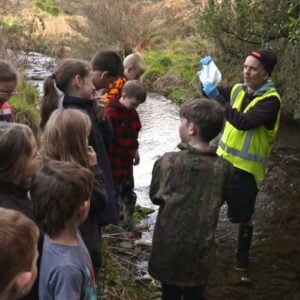
Using eDNA to identify taonga species
The native species that live in our rivers leave tiny traces of genetic material in the water. This environmental DNA (eDNA) can be detected to help communities understand the health of the water and the taonga species it supports. This project will compare eDNA from two farms and a culturally significant headwater site, to understand the ecosystem changes as the awa travels through different landscapes. The results will enable farmers to see where wildlife and farmed animals are contributing to eDNA, provide a method to detect positive change in future, and provide communities with a way to connect more deeply with their awa and its ecosystems.
Rural Professional: Arapera Paewai (Taiao Ora Contracting)
Project Team: Penelope Drysdale (Te Miro Farm/Drysdale Dairies), Adrian Cookson (AgResearch), Shaun Wilkinson (Wilderlab NZ), Amy Gault (Wilderlab NZ)
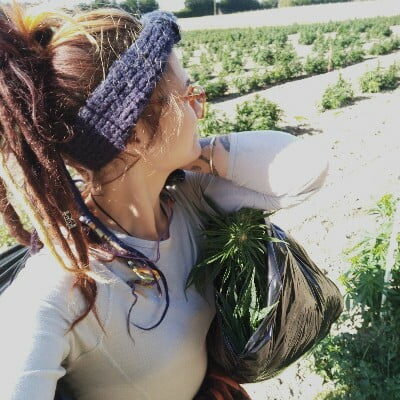
Te rito hāpori: Building understanding in a budding industry
Medicinal cannabis growing is suitable for integration within many existing commercial farming systems, providing opportunities for diversification of both farm activity and income. Outdoor-grown medicinal cannabis is becoming increasingly viable across New Zealand as regional supply chains emerge, develop, and mature. This project aims to produce a web-based 'grower's handbook', sharing knowledge from four Otago-Southland commercial growing operations. It will describe best-practice crop management techniques and relevant factors for integrating medicinal cannabis cropping within existing farm systems.
Rural Professional: Jaye Cavaye-Astle (Te Ao Kakano)
Project Team: Donald Morrison (Te Ao Kakano), Phil Morrison (Across Performance), Timbo Deaker (Viticultura Cental Otago)
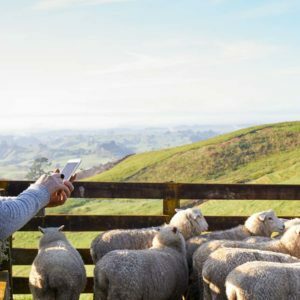
Solar energy integration with livestock farming
Solar farms are typically installed as a large-scale monoculture of photovoltaic panels. The opportunities for integrating solar with more traditional farming are usually presented from the viewpoint of how farming might complement an energy business, such as by reducing the need for mowing, rather than how an energy enterprise might complement an established farming business. This project aims to establish how solar arrays could be incorporated into livestock farms in the Canterbury region to provide environmental and animal welfare benefits by offering low-maintenance shade, while also generating renewable energy for financial benefit.
Rural Professional: Anna Vaughan (Tambo)
Project Team: Alan Brent (Victoria University of Wellington), Jim Hinkley (Victoria University of Wellington), Pablo Gregorini (Lincoln University), Wim de Koning (Lincoln University), farmers TBC
 View Our Strategy Document 2019 – 2024
View Our Strategy Document 2019 – 2024



